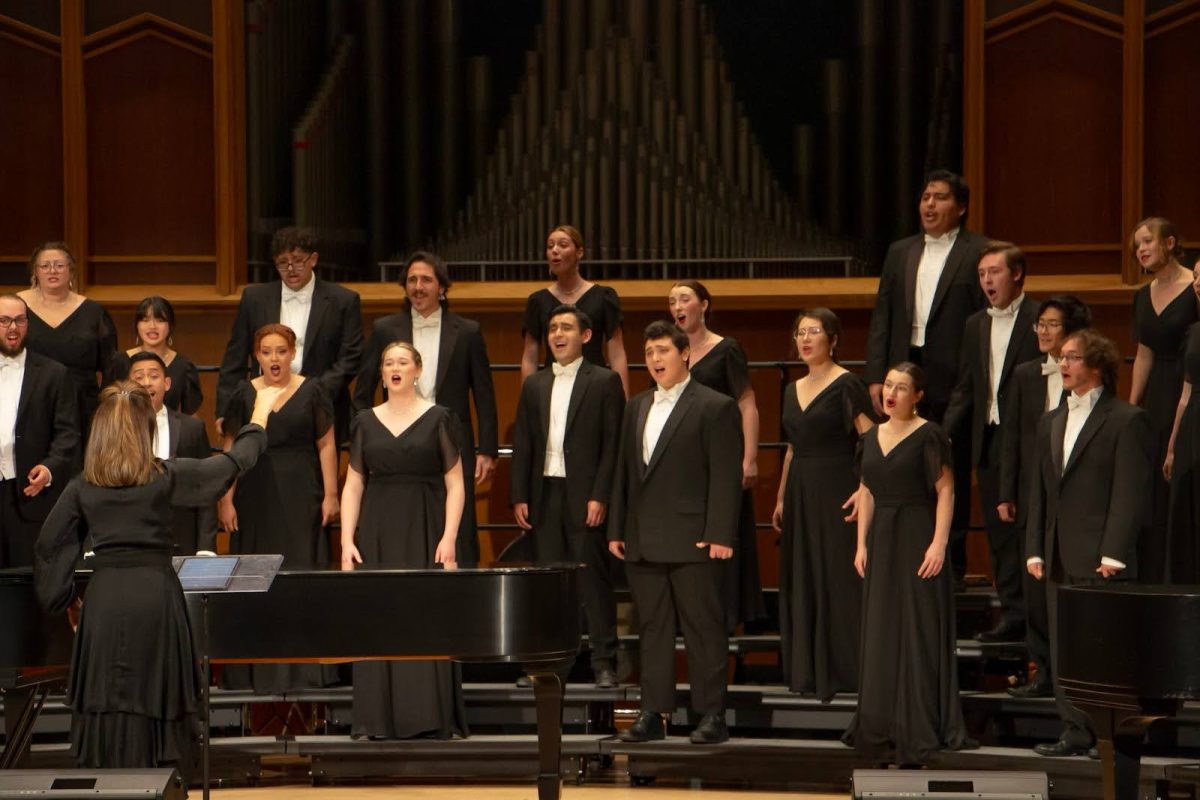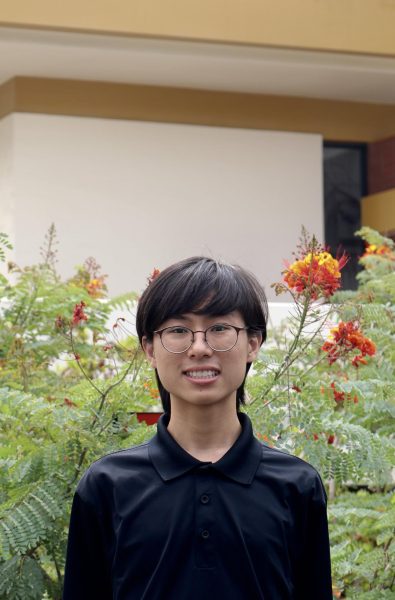The Conservatory of Music hosted its 32nd Annual PRISM Concert on Oct. 26 at the Lansing Recital Hall. The PRISM Concert showcases all the ensembles at Biola, ranging from soloists, quartets and full bands.
THE PROGRAM
The evening began with a bright fanfare by the Brass Ensemble, which played “Fanfare for a Bowl Concert on Motifs of Die Gurrelieder” by Arnold Schoenberg.
The University Chorus, accompanied by collaborative pianist Carol Hughes, was next. They sang a rendition of “Sweet Rivers” arranged by Shawn Kirchner. The hymn speaks about cherishing the rivers of redeeming love and the future hope for a day when all troubles will be over. After that somber hymn, they immediately jumped into “Music Down In My Soul,” a groovy gospel-style song arranged by Moses Hogan that expressed bright confidence that “there must be a God somewhere.”
After them followed Brahms Mulyawan and Rochelle Yuan, who performed a duet of “Fantasy-Tableaux” by Sergei Rachmaninoff. The song gave off a mysterious effect with many trickling melodies.
They were followed by Yang Xiao, a piano soloist, who played “Etude, Op. 25, No. 11 in A Minor” by Frédéric Chopin. The song started slow but evolved into intense melodies.
Next was a musical quartet: violinist Anna Krahn, violist Daniel Shaffer, cellist Yeji Lee and pianist Kai Lee. They performed “Piano Quartet in E-flat Major, Op, 47” by Robert Schumann. The song felt moody and slow, yet pleasant — almost giving off a dimly lit ballroom atmosphere.
Afterwards, the Biola Chorale came to the stage. Their first song was “Dixit in Corde Suo” — Latin for “he said in his heart” — by Levente Gyöngyösi. The aggressive and intense song is a Latin rendition of Psalm 53, which contains the verse: “The fool says in his heart: there is no God.” The next song performed was “Plaudite Psallite” — Latin for “psalm of thanksgiving” — by Kesutis Daugirdas, which was an amalgamation of psalms in Latin. It had a much more uplifting and clear tone, marked with enchanting “hallelujahs.”
After a 15 minute intermission, the Jazz Ensemble kicked things off with “Alexander’s Big Time Band,” a powerful, exciting and blasting tune.
The Vocal Jazz Ensemble, with an instrumental background, cooled things down with the song “No Moon at All” arranged by Damon Meader and Peter Eldridge. It was a slow and romantic song, with many vocal and instrumental soloists in between soothing choruses.
The jazz section of the concert ended with the Jazz Combo, a small group of seven jazz instrumentalists who played “Fall” by Wayne Shorter.
This was followed by Ilan De La Cruz, a marimba soloist, who played a calming and light tune called “Strive to be Happy” by Ivan Trevino.
Baritone vocal soloist Jonathan Rico, accompanied by the Biola Symphony Orchestra, then performed “Votre toast, je peux cous le rendre” — also known as the “Toreador March” — by Georges Bizet. The song is from the opera “Carmen,” sung by a bullfighter as he describes the action and glory in the bullring. Rico, singing with an immensely deep voice, gave a dramatic and pompous performance.
Jesenya Rivera-Puls and Andrew Ambrose, a duo of singers, sang “Where’s My Shoe?” by Jerry Brock. They were accompanied by pianist Alice Song. The song comes from the musical “She Loves Me,” where it portrays a comical scene of a man and a woman arguing over something, while the woman is searching for her shoe. Rivera-Puls and Ambrose gave a hilarious performance, giving exaggerated expressions and gestures as they argued while singing in front of the audience.
For the penultimate song, the Biola Symphony Orchestra performed a composition called “Symphonic Suite,” written by Biola student and trombonist Jason Rhue. The song began with an upbeat tune and then became boisterous and loud. It turned into a soft, majestic melody before ending with a bright blast.
The Biola Symphonic Winds played the final song “Mother Earth” by David Maslanka. As audience members rose to exit, they played “Serenade,” a silly asymmetrical tune.






